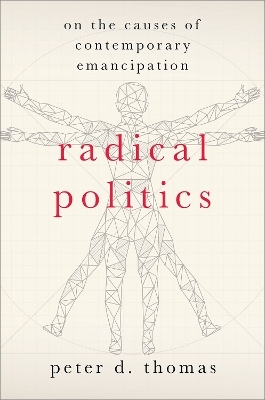
Radical Politics
On the Causes of Contemporary Emancipation
Seiten
2024
Oxford University Press Inc (Verlag)
978-0-19-752807-5 (ISBN)
Oxford University Press Inc (Verlag)
978-0-19-752807-5 (ISBN)
The last twenty years have witnessed a proliferation of radical social and political movements around the world, in wave after wave of struggles against intersecting forms of exploitation, domination, and subalternization. From the International Women's Strike and Occupy, to #BlackLivesMatter and direct action against the climate emergency, a series of common questions have continually re-emerged as immediate and practical challenges. How should radical political movements relate to the state? What makes emancipatory politics fundamentally different from both technocratic and populist models of "politics as usual"? Which forms of organization are most likely to deepen and extend the dynamics that led to the emergence of these movements in the first place?
To investigate the goal, nature, method, and organizational forms of radical political engagement against the neoliberal consensus, Peter D. Thomas draws on the work of Antonio Gramsci, the Italian Communist Party leader and political theorist best known for his ideas about hegemony. Hegemony is a concept that, most commonly understood, describes either the way in which a political system functions from the top down, through a culture of passive consent, or a process of neutralizing cultural and political differences to form unity in a nation state. Interestingly, both the left and right have seized on this idea, but, of course, to different political ends. In Radical Politics, Thomas argues that both of these interpretations are misapprehensions of the radical potential of Gramsci's ideas.
Offering a new reading of Gramsci, Thomas contends that hegemony is a process of differentiation in which political culture is always changing, and always with the goal of moving toward expanded freedom. Over the course of the book, Thomas looks at the way in which various theorists have approached the dilemma of how to engage productively in radical politics and explains why hegemony is a method of doing politics rather than an end goal. A distinctive and forceful contribution to ongoing debates about the nature and orientation of contemporary emancipatory movements, Radical Politics provides a counterintuitive interpretation of Gramsci's famous and newly relevant work.
To investigate the goal, nature, method, and organizational forms of radical political engagement against the neoliberal consensus, Peter D. Thomas draws on the work of Antonio Gramsci, the Italian Communist Party leader and political theorist best known for his ideas about hegemony. Hegemony is a concept that, most commonly understood, describes either the way in which a political system functions from the top down, through a culture of passive consent, or a process of neutralizing cultural and political differences to form unity in a nation state. Interestingly, both the left and right have seized on this idea, but, of course, to different political ends. In Radical Politics, Thomas argues that both of these interpretations are misapprehensions of the radical potential of Gramsci's ideas.
Offering a new reading of Gramsci, Thomas contends that hegemony is a process of differentiation in which political culture is always changing, and always with the goal of moving toward expanded freedom. Over the course of the book, Thomas looks at the way in which various theorists have approached the dilemma of how to engage productively in radical politics and explains why hegemony is a method of doing politics rather than an end goal. A distinctive and forceful contribution to ongoing debates about the nature and orientation of contemporary emancipatory movements, Radical Politics provides a counterintuitive interpretation of Gramsci's famous and newly relevant work.
Peter D. Thomas is Professor in the History of Political Thought at Brunel University London. He is the author of The Gramscian Moment and serves on the editorial boards of Historical Materialism and the International Gramsci Journal.
Introduction: Radical Politics against the New World Order
1. Final Cause: Politics Beyond the State
2. Material Cause: The Constitution of the Political
3. Efficient Cause: Hegemony as a Method of Political Work
4. Formal Cause: The Question of Organization
Conclusion: Contemporary Self-Emancipation
| Erscheinungsdatum | 18.10.2023 |
|---|---|
| Reihe/Serie | HERETICAL THOUGHT SERIES |
| Verlagsort | New York |
| Sprache | englisch |
| Maße | 201 x 147 mm |
| Gewicht | 408 g |
| Themenwelt | Geschichte ► Teilgebiete der Geschichte ► Kulturgeschichte |
| Sozialwissenschaften ► Politik / Verwaltung ► Politische Theorie | |
| Sozialwissenschaften ► Soziologie | |
| ISBN-10 | 0-19-752807-4 / 0197528074 |
| ISBN-13 | 978-0-19-752807-5 / 9780197528075 |
| Zustand | Neuware |
| Informationen gemäß Produktsicherheitsverordnung (GPSR) | |
| Haben Sie eine Frage zum Produkt? |
Mehr entdecken
aus dem Bereich
aus dem Bereich
der stille Abschied vom bäuerlichen Leben in Deutschland
Buch | Hardcover (2023)
C.H.Beck (Verlag)
23,00 €
vom Mittelalter bis zur Gegenwart
Buch | Softcover (2024)
C.H.Beck (Verlag)
12,00 €


